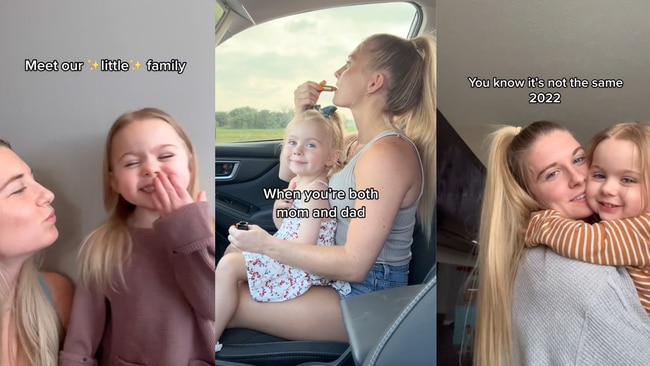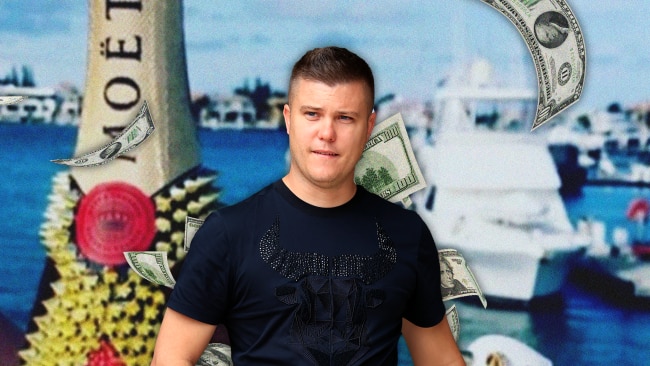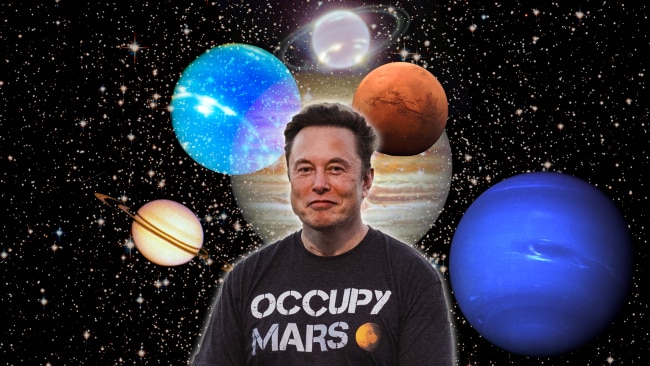Would you post your kid online after these chilling allegations?
Concerns about Wren Eleanor are making Australian influencers rethink posting their kids online.

Concerns about Wren Eleanor are making Australian influencers rethink posting their kids online.
Chilling allegations around American 3-year-old TikTok star has sparked a backlash against posting children's faces on social media, as "kids can't consent."
Single mother Jaquelyn said the past couple of months have been "disturbing", after followers noticed inappropriate comments under videos of her daughter, particularly of the child eating.
@wren.eleanor's 17.3 million followers on TikTok see videos of three-year-old Wren playing, eating, showing her outfits and dancing.
Jaquelyn defended her "different parenting style" and said law enforcement agencies have found no proof her daughter's image is found on any sites that carry child abuse material.
Top Australian social media creator Caleb Finn (@caleb.finn), a new parent himself, told The Oz, “[Wren] is going to grow up and the mother claims that it's a digital scrapbook for her daughter to look back on, but if you go on any of the videos, it's all these older people pining for this baby.”
Finn, a former primary school teacher with almost 16m followers on TikTok, and his partner (@xlilsoup), with 2.2m followers on TikTok, both use pseudonyms for privacy reasons and post videos and images of their child with his face blurred.
The couple said TikTokers often used them as “examples” for how to keep their kids safe and protected online.
“Even people with, like, a couple of thousand followers don't show that a kid's face online because Caleb and Soup don't,” Soup said.
“There are so many dangers on the internet. You don't know who's looking at your content, you don't know who's saving your content, what they're using it for.”
Speaking generally and not about Wren Eleanor, Soup said it was particularly concerning when money was involved. “They're using their children to get these brand deals … it's enabling this mindset that they can keep exploiting their children.”
Caleb said he wanted to “be a role model for other parents to say this is how you should do it”. He added: “Especially when there's like a lack of laws and rules with anything to do with this kind of space.”
In a public video posted to TikTok in response to Wren Eleanor’s mother defending her parenting style and committing to making more videos, Caleb said “kids can’t consent. Kids deserve privacy.”
“If your child’s safety and upbringing were your number one priority, we would have no idea who your daughter is … we certainly wouldn’t be seeing your daughter pretending to shave in compromising positions or in a bathing suit taking a bath.”
Even 'innocuous' photos carry risk
Speaking generally, Australian Federal Police Commander Hilda Sirec, from the Australian Centre to Counter Child Exploitation, said child sex offenders often collected “innocuous” images of children that they found online.
“Child sex offenders that we've charged with Commonwealth exploitation offences, in their cache of material, not only was there very heinous child abuse material, but they also had other images of children that wouldn't necessarily be classed on their own as child abuse images.”
She said there were also possible issues around using alleged offenders using the hoards of information posted online to groom both parents and carers into accessing their children. “We've seen instances where parents or carers are being offered free products (by offenders), or they offer children modelling contracts just to have access to the children,” she said.
e-Safety Commissioner, Julie Inman Grant said for any parent posting their child online, the worst cases scenario was that it could end up on paedophile websites and forums, but there were also issues around privacy and a digital footprint a child cannot consent to.
“Digital photos can also contain information about the time, date and GPS coordinates of where the photo was taken," she said.
“Sharing images of your children online without their knowledge or consent may lead to problems for them down the track, ranging from embarrassment to developing a poor understanding of consent and respect themselves."
A different lens 🔎
Curtin University Media Professor Tama Leaver said many of the comments around Wren sounded like “conspiracy theory”.
Speaking about a subreddit with 20,000 members, Prof Leaver said, "it feels like a conspiracy theory community, like the amount of almost second by second analysis of videos and commentary. It feels like the sort of videos that you would get in the middle of the early days of COVID, where it's like coming from 4g towers and things like that ... And the videos that they're posting here feel really similar to that."
“There is a real double standard. If this was a young dad doing this with boys, then this would be celebrated as more upstanding parenting - this is a dad engaging with their kids and spending time. But when it’s a young, single mom it's seen as they're exploiting their child and sexualising them,” Dr Leaver, Chief Investigator in the ARC Centre of Excellence for the Digital Child said.
Yet, he said there were important conversations being ignited around child influencers and regulation.
“The real question is around child influencers or children appearing on social media in what is increasingly obviously for-profit platforms. Clearly, there is product placement … and there's clearly money changing hands and when you're at 17 million followers, that's not going to be insignificant money,” he said.
“Why don't we have any proper rules about this yet? I mean, Australia doesn't, America doesn't really ... We have very loose rules that say you should declare if money is changing hands, for example, it should say #ad. But that's a pretty low bar in terms of a rule especially when kids are involved.
He said the rules would be like an “updated version of child labour laws to take social media into account”, such as those attributed to child actors.
For more TikTok-related content, check out: TheTikTok star who makes break-ups bearable and the entrepreneur who is gross and wants to make you rich.


